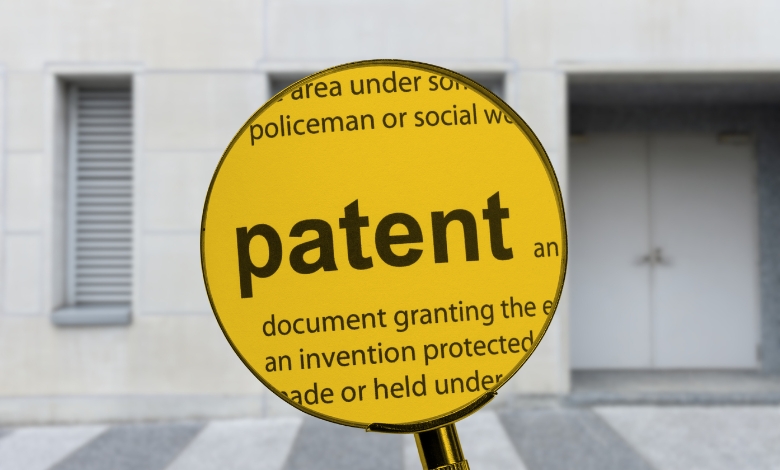Capital One’s $35 billion acquisition of Discover gains Delaware approval, signaling major changes for banking, consumers, and markets.
The financial world is always changing, and every so often, something big happens that shakes things up. Capital One buying Discover Financial Services for $35 billion is one of those moments that could make a huge impact.
When I heard about this deal, my first thought was: What does this mean for people who use credit cards, like me? Is this just about taking over the credit card market, or could it change the way we use financial services entirely? The more I looked into it, the more I realized this deal could have some major consequences, not just for businesses but for all of us. It could even redefine the firm’s business model, impacting how they operate and provide services moving forward.
In this article, I’ll break down what this deal means, how it might affect you, the challenges it could face with regulators, and what it could mean for the future of banking. Whether you’re into investing, work in the industry, or just wondering about your Discover card, I’ve got you covered.
Article Breakdown
The Deal: Capital One + Discover = A New Powerhouse
Let’s break it down. On December 18, 2024, Capital One got the green light from Delaware regulators to move ahead with its purchase of Discover. This is a big step, but it’s not the end of the road. The deal still needs approval from federal regulators, like the Federal Reserve and the Office of the Comptroller of the Currency.
If this goes through, Capital One will become the biggest credit card issuer in the U.S., leaving JPMorgan Chase in second place. And it’s not just about credit cards, this merger would combine Discover’s payment network with Capital One’s platform, which is a huge win for the company.
Why This Deal Matters
At first, this might seem like just another bank merger, but there’s a lot more going on. Here’s why it matters:
- Control Over Payment Networks: Discover has its own payment network, unlike many banks that rely on Visa or Mastercard. If Capital One buys Discover, they can cut costs by processing payments through their own system.
- Competitive Advantage: With Discover’s infrastructure, Capital One could offer better credit card perks, making it harder for smaller banks to compete.
- Bigger Market Share: Combining their customer bases gives them millions of users, which strengthens their position in the banking world.
The Consumer Impact: What Happens to Your Credit Card?
If you have a Discover card in your wallet, you’re probably wondering what this means for you. Will your rewards change? Will your card still work? And if you’re a Capital One cardholder, should you expect any changes?
Short-Term: No Immediate Disruptions
For now, it’s business as usual. Regulatory approvals take time, and large mergers like this don’t transform overnight. Your Discover card will still function the same way, and Capital One’s lineup of products will remain intact.
Long-Term: Potential Changes
Here’s where things could get interesting:
- Better Rewards and Perks? Capital One has been aggressive in offering premium travel rewards, especially with its Venture and Savor cards. If Discover’s no-fee structure and cashback model merge with Capital One’s perks, we could see more attractive options for consumers.
- More Acceptance for Discover Cards: One of Discover’s biggest weaknesses has been its limited acceptance compared to Visa and Mastercard. With Capital One’s muscle behind it, Discover’s payment network could gain ground, making Discover cards more usable internationally.
- Fewer Options for Consumers? On the flip side, consolidations sometimes lead to reduced competition. If Capital One dominates more of the credit card market, consumers might see fewer innovative products from competitors.
The Regulatory Battle: Can It Get Approved?
Mergers of this scale don’t just get rubber-stamped. Regulators are already scrutinizing the deal to assess its impact on competition and consumer choice.
Key Concerns from Regulators
- Antitrust Issues: New York Attorney General Letitia James has launched an investigation to determine whether this merger violates antitrust laws. The concern? If Capital One gets too big, competition might suffer, leading to fewer choices and higher fees for consumers.
- Consumer Protection: U.S. Senator Sherrod Brown has urged regulators to consider how this deal affects everyday Americans. Will this make banking more inclusive or just consolidate power in the hands of a few massive players?
- Federal Scrutiny: The Federal Reserve and the Office of the Comptroller of the Currency will be key decision-makers here. Their approval (or rejection) will shape the deal’s future.
If history is any indication, regulatory approval won’t be a walk in the park. However, with a well-structured proposal and community commitments, Capital One could secure the green light by 2025.
The Market Reaction: What Investors Need to Know
Financial markets have been paying close attention to this deal, and so far, the reaction has been positive. Here’s why:
- Stock Performance: Since the announcement, shares of both Capital One and Discover have seen gains, reflecting investor optimism about synergies and cost efficiencies.
- Industry Competition: This move will force other banks to rethink their strategies. Expect increased competition among major credit card issuers and payment networks.
- Potential Cost Savings: Mergers often lead to reduced operational costs, and this deal is no exception. Capital One could save billions in transaction fees by running payments through Discover’s network instead of Visa/Mastercard.
A Personal Take: The Bigger Picture
When I think about this merger, I can’t help but see the broader shift in financial services. We’re witnessing a battle for control, who owns the infrastructure behind payments, who gets to set the rules, and ultimately, who dictates the future of banking.
I remember when I got my first credit card in college. It was a Discover card, and while I loved the cashback perks, I constantly ran into stores that wouldn’t accept it. That frustration stuck with me. Now, years later, seeing a powerhouse like Capital One step in makes me wonder, could this be the moment Discover finally breaks into the mainstream as a major network?
At the same time, there’s a cautionary tale here. Big bank mergers often promise consumer benefits, but they don’t always deliver. Fees creep up. Options shrink. And sometimes, innovation slows down because one player dominates too much of the market.
Key Takings
- Capital One’s acquisition of Discover could have major implications for the credit card industry, consumers, and financial markets.
- Regulatory approval is a key hurdle that could shape the deal’s future. Expect close scrutiny from regulators and potential conditions to secure their green light.
- This merger highlights the ongoing battle for control in financial services and raises questions about consolidation, competition, and consumer impact. As with any big business move, it has its pros and cons, but only time will tell what this means for all stakeholders involved. So hold onto your cards – it’s going to be an interesting ride.
Useful Articles:
- NY AG adds to scrutiny of Capital One-Discover deal: The New York Attorney General’s office is investigating whether the $35.3 billion Capital One-Discover merger violates antitrust laws.
- New York probing legality of Capital One-Discover merger: Letitia James, New York’s Attorney General, is examining the legality of the Capital One-Discover acquisition under antitrust regulations.
- Warren warns OCC, Fed of ‘malfeasance’ on Capital One-Discover merger: Senator Elizabeth Warren urges regulators to prioritize consumer impact and avoid outdated guidelines in evaluating the merger.
- Discover flags potential Capital One merger delay: Discover announces a potential delay in finalizing the merger with Capital One, citing regulatory and market factors. Let me know if you need further refinements.



